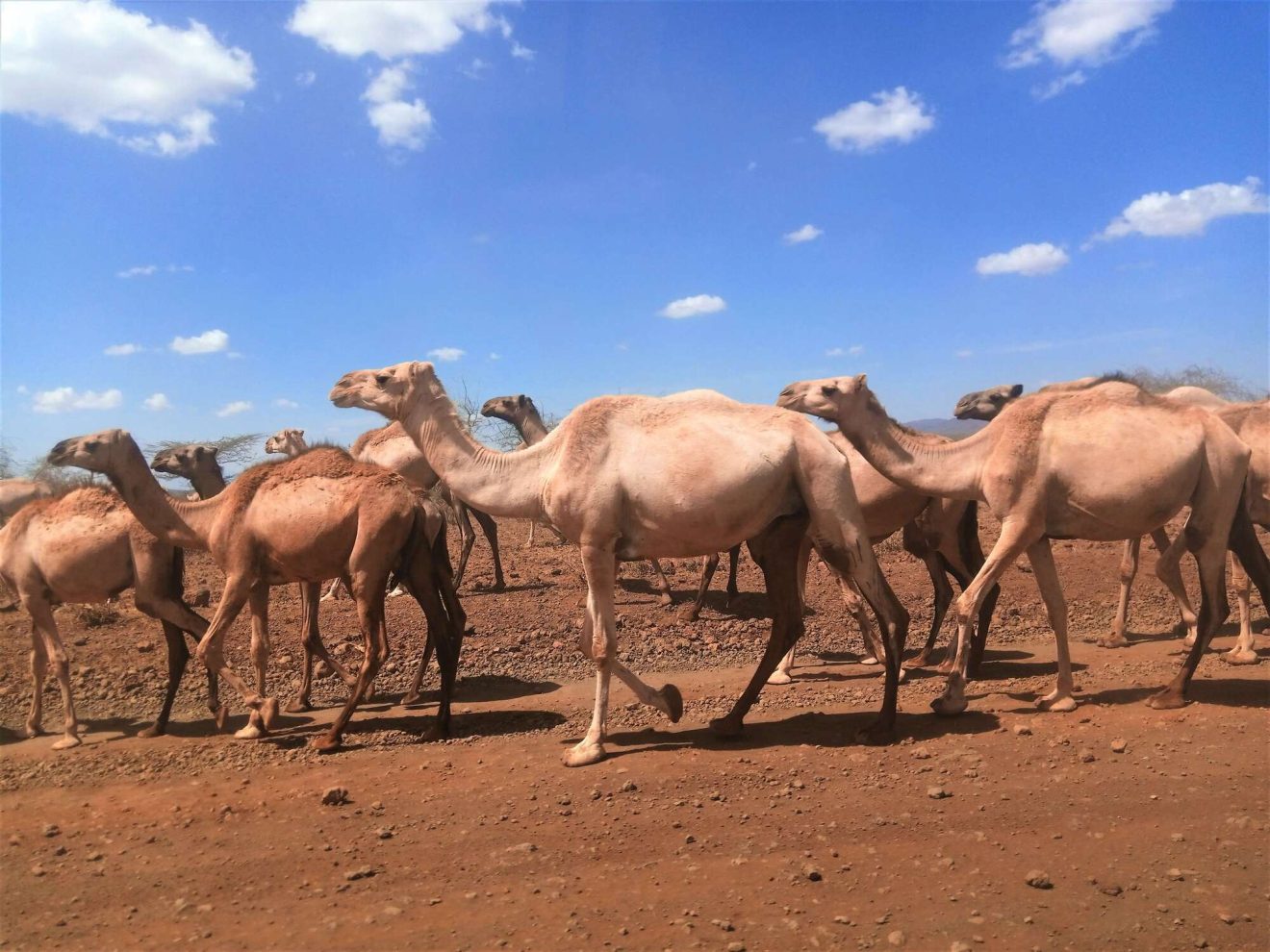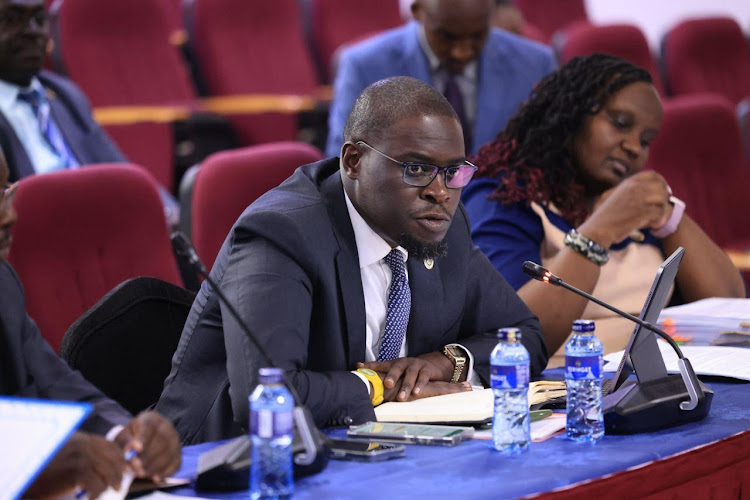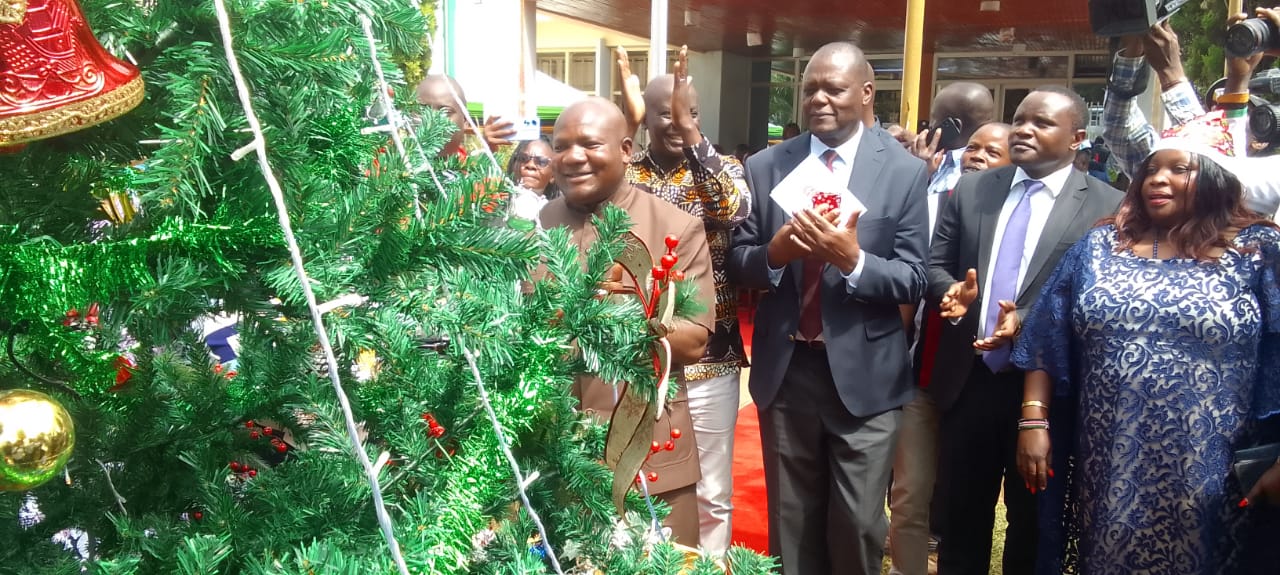By TWV Team
A storm is brewing in Kerio Valley after hundreds of camels, allegedly owned by a senior government official, encroached on the Rimoi Game Reserve in Elgeyo Marakwet County. The incursion has ignited fury among residents, who accuse authorities of double standards and neglect, exacerbating human-wildlife conflict in the region.
Residents, under the Chebaror, Irong, Keu, and Setek Lands Association, held a charged meeting in Nyawaa, Keiyo North, last weekend. Led by Chairman John Lagat and Daniel Chesire, the group issued a 30-day ultimatum to the government, warning they would forcibly drive out the camels if their grievances remained unaddressed.
“‘We’ve demanded to know the owners of the camels from Kenya Wildlife Service (KWS) personnel, and they’ve told us our leaders know who they are,’ said Lagat.” The residents lamented that they were displaced decades ago to establish the game reserve but have never been compensated. Meanwhile, they claim camels owned by politically connected individuals graze freely on their ancestral land.
In a strongly worded statement, the community accused elected leaders of colluding with camel owners while ignoring their constituents’ suffering. They also questioned the government’s silence, noting that a petition submitted to the parliamentary committee on tourism and wildlife in 2023 remains unanswered.
“This is impunity. Our people are being harassed by wild animals, crops are being destroyed, and yet leaders are shielding those responsible,” said Chesire.
Residents say the presence of camels and livestock from neighbouring counties has caused severe environmental degradation and disrupted the ecosystem. They cited increasing elephant invasions into farms as evidence of growing competition for scarce resources between domestic animals and wildlife.
“‘The biodiversity has been destroyed. Elephants are invading people’s farms, yet no one is addressing compensation. It’s as if we don’t exist,’ added Chesire.”
A key concern is the lack of clear boundaries for Rimoi Game Reserve. The community claims the reserve has expanded beyond its legal three-kilometre limit along the Kerio River, encroaching on community land. They demand an urgent government-led boundary verification exercise and fencing of the reserve to prevent further conflict. They also called on the county government to facilitate a long-overdue land demarcation process to enable economic projects on their land.
They further revealed that the agreement between KWS and the now-defunct Keiyo County Council expired three years ago and remains unrenewed, creating a legal vacuum in the reserve’s management.
“‘As a community bordering the reserve, we should be allowed to return to our farms without conditions. We’ve tried to reach out to our leaders on many occasions, but our pleas have fallen on deaf ears. We have nothing to celebrate for the last 25 years,’ said Chesire.”
The residents warned that should the government fail to act, they would make “unilateral decisions which may not be palatable.” They also criticised their leaders for repeatedly failing to attend meetings convened to address the escalating crisis.
As tensions rise, the ball lies squarely in the court of both county and national governments. Without swift and transparent intervention, what began as a dispute over camel grazing could escalate into a broader conflict over land rights, resource access, and government accountability in the volatile Kerio Valley.





